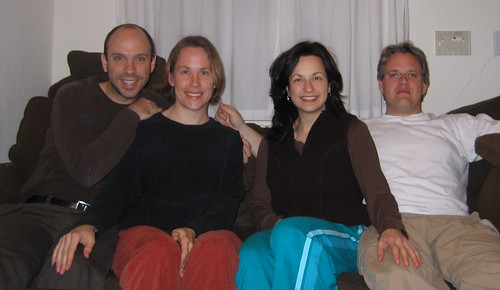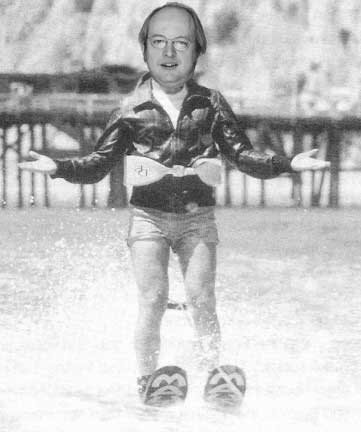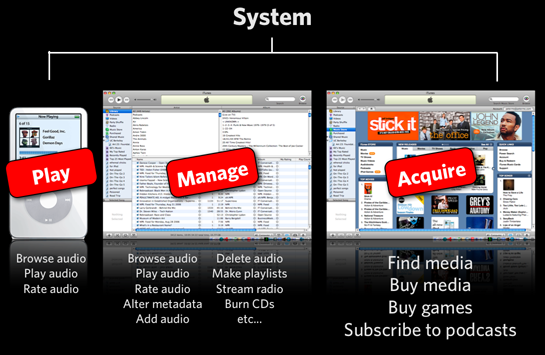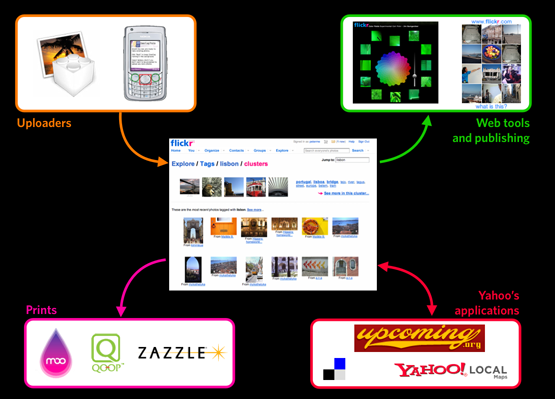Tonight I saw Michael Pollan, the author of The Omnivore’s Dilemma, and his arch-nemesis John Mackey, CEO of Whole Foods, live on stage in Berkeley.
At some point, the webcast will be made available here.
Okay, so I’m overplaying the arch-nemesis bit, the series of open letters between Michael Pollan and John Mackey, begun by Mackey in response to The Omnivore’s Dilemma, suggested that all was not sympatico. (Michael Pollan’s first letter, and his second letter.)
Mackey’s Powerpoint
For the first 45 minutes of the event, Mackey gave a (remarkably poorly designed) Powerpoint presentation covering what he calls the 6 ages of food production. He focused on the last two — the Industrial Age (which we’re still in, but he hopes we’re getting out of) and the Ecological Age (which he sees Whole Foods as a leader in engaging).
Mackey also showed remarkably disturbing video of factory animal husbandry. While the conditions are clearly terrible for animals, my primary thought was, “What does this do to the psyches of the people who work with these animals?”
The Powerpoint was followed by a discussion between Pollan and Mackey on stage. Not surprisingly, the two by-and-large agree on everything.
Some interesting new developments at Whole Foods
Whole Foods has started a $30 million venture capital fund to support unique food artisans around the world.
Whole Foods will be collaborating with Transfair (the Fair Trade certifiers) to develop a “Whole Trade Guarantee,” so you can feel better about the sourcing of your food.
Some thoughts inspired by the discussion
Originally, the event was supposed to be in a 700 person auditorium, but it sold out in a matter of hours. So it moved to a 2,200 theater, and sold out in less than a week. Now, part of this is that we’re in Berkeley, which probably is the city that has been most serious about it’s food for the longest time. But there’s clearly something going on here.
Pollan and Mackey talked about a desire to bring complete transparency to the food your eating. Pollan alluded to what Denmark has done, where, with a second bar code on your food, you can call up highly specific information about where your food came from — specific feed lots, etc. (Pollan mentions this in this article.) All I could think about was food as spime, and the challenges information architects would have in making this immense about of information about what we eat, um, digestible (ha!) by consumers.



